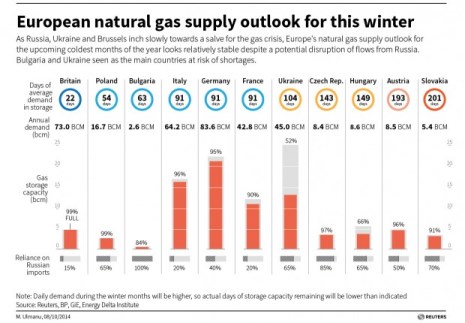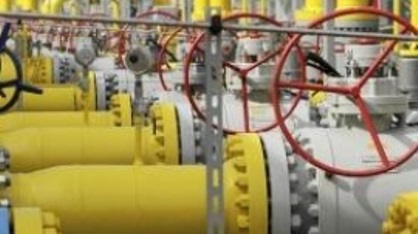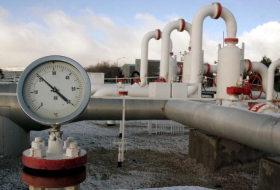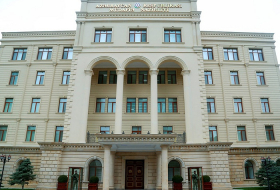Ukraine is getting the cold shoulder from Russia on two fronts, and that could be bad news for Europe. As if the military conflict between pro-Russian separatists and Ukrainian forces weren’t enough, tensions over unpaid gas bills remain high. Russian energy giant Gazprom cut off supplies of gas to Ukraine in June after Kiev failed to pay $3.1 billion in gas debt, but this is more than just a Ukrainian problem. The European Council on Foreign Relations succinctly frames the issue:
“The impending crisis illustrates Europe’s dependence on Russian gas and the near-monopoly Ukraine has on the transit of gas to Europe. This means when Russia limits or cuts off Ukrainian gas, it becomes a European problem because Ukraine then siphons off Russian gas destined for European customers.”
As this Reuters graphic shows, Ukraine’s gas reserves are just over half full, and a half-dozen other countries are reliant on Russian gas exports for at least 50 percent of their consumption. While Norway’s Statoil recently struck a deal to sell Ukraine gas, a Statoil spokesman called the deal “a short-term and relatively low-volume agreement.” Russia is also trying to resolve the dispute by offering Ukraine a more flexible payment schedule for overdue natural-gas supplies. Talks between Russian Energy Minister Alexander Novak, Ukrainian Energy Minister Yuri Prodan and EU Energy Commissioner Guenther Oettinger are scheduled to resume in Berlin on Oct. 21, and an agreement can’t come quickly enough. As Gazprom CEO Alexey Miller astutely pointed out: “The winter will be cold.”

















































